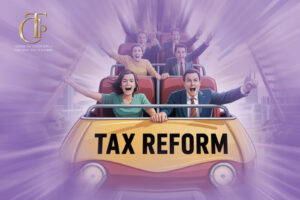As an entrepreneur, you have already established that you are an out-of-the-box thinker. After all, you developed a product or service that delivers value your competitors simply don’t offer. However, there is more to launching your business than a well-thought-out marketing mix. How you structure your company may impact your bottom-line results as much as the classic “Five Ps”.
Many small business owners assume that when they are starting out, the default Sole Proprietorship or Partnership structure will do for the first few years. For some, that is absolutely true. However, it’s quite common for business owners to discover years later that they would have been better served with one of the alternatives.
Trusting a Certified Tax Coach for guidance as you create your business plan ensures nothing is left to chance. You will review the pros and cons of each business entity, then make a deliberate decision that benefits you when it is time to file your taxes.
One Size Doesn’t Fit All
Sole proprietorships are simple and inexpensive to set up, so this structure seems like the logical choice for new businesses. However, from a tax perspective, there are several significant drawbacks. For example, you may find yourself paying income taxes twice: once on the business side and again when you file your personal returns. More importantly, sole proprietorships leave you open to financial and legal liability. You and your business are the same entity, which means your personal assets could become the target of your business creditors.
Partnerships have the same pros and cons with an additional layer of complexity. They are simple to set up, and you share profits with your business partner or partners. However, you also share financial and legal risks. Depending on the details of your partnership agreement, this could put you in a difficult situation if your partner makes a bad decision.
Limited Liability Companies (LLCs) have become quite popular because they offer a bit more protection for your personal assets. Better still, the initial set-up remains relatively simple and inexpensive. This type of business entity often makes sense for new businesses because it is supremely flexible. You have choices when filing your tax returns, which means opportunities to keep your tax bill low.
The Corporate Advantage
All too often, entrepreneurs assume that the cost and complexity of launching a corporation far outweighs any possible advantages. That may be true for a traditional C-Corporation, which is designed for major organizations that bring in millions or billions each year. However, you may discover that the more manageable S-Corporation is a perfect match for your business.
S-Corporations often make sense for small, privately held companies. You can have up to 100 shareholders, which would be far too many for a standard partnership. While there is more expense involved in an S-Corporation than you would incur with a partnership or LLC, you enjoy greater liability protection, and you avoid being taxed twice on the same income.
The bottom line is that defaulting to a sole proprietorship or partnership doesn’t make sense if you are serious about building your wealth through business ownership. While either of these might be the best structure for your business, your comprehensive tax minimization plan must include an informed, deliberate decision on your business entity.
To learn more about choosing the business entity that best fits your needs, connect with an experienced Certified Tax Planner today.







